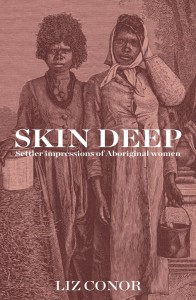Report – FRN-sponsored ‘Gender & Colonialism: New Directions’ Panel at the Colonial Formations Conference organised by UOW’s Colonial and Settler Studies Network (CASS)
In collaboration with CASS, FRN sponsored a panel at the recent Colonial Formations international conference. Over 100 people registered to attend the conference. The panel was designed to showcase some of the newest research being carried out by scholars in the field of gender history and colonialism.
Assoc. Prof. Jane Haggis acted as Chair for the panel. Her insights were particularly astute given her vast experience and renown as a scholar of gender and colonialism. She was particularly keen to point out that the papers in the panel were connected by their varied ways of demonstrating how colonised subjects, even though they attempted to open up spaces in which to express their reaction to the colonising process, were restricted by the boundaries imposed on them by the colonisers – many of those restrictions being gendered.
Assoc. Prof. Liz Conor concluded what was a stimulating panel by delivering an impassioned and rigorous critique of the racist depictions of Aboriginal women by the Australian cartoonist, Eric Jolliffe.
Liz is an ARC Future Fellow at La Trobe University. She is the author of Skin Deep: Settler Impressions of Aboriginal Women [UWAP, 2016] and The Spectacular Modern Woman: Feminine Visibility in the 1920s [Indiana University Press, 2004]. She is the editor of Aboriginal History, a columnist at New Matilda, and has published widely in academic and mainstream press on gender, race and representation.
Her paper, ‘The Comic Misadventures of Eric Jolliffe’s Witchetty’s Tribe’, was inspired by the fact that, in 1980, cartoonist Eric Jolliffe was the subject of a Federal Anti-Discrimination Board case over a cartoon published in the Permanent Building Association’s monthly magazine, Corroboree. The cartoon depicted a voluptuous young woman wearing only a bra on her bottom and was captioned ‘It’s a white man’s garment she got from the missionary’s wife’. Jolliffe’s ‘mates’ had jumped to his defense, including A.P Elkin and Ted Egan, but Jolliffe stopped drawing his Witchetty’s Tribe characters. Jolliffe’s Aboriginal characters were interspersed with portraits, and anecdotally they were enjoyed by Aboriginal and well as white readers in the Northern Territory. Jolliffe claimed to have a photo of an Aboriginal audience at an Aboriginal Olympic Games in Arnhem Land admiring and enjoying the same cartoon within an exhibition of his Saltbush Bill and Witchetty’s Tribe cartoons. He had imagined his ‘very accurate’ depictions of tribal living countered the denigrating cartoons of drunken ragged fringe-dwellers that featured in the interwar magazines he drew for including The Bulletin, Smith’s Weekly, Pix and The Sun. While his humor worked from the incongruity of traditionally-living people mouthing white domestic platitudes about fashion, parenting and even anthropology it 14 sometimes pilloried the later rather than the former. This paper will situate Jolliffe’s cartoons in the assimilation era and argue the romanticism Jolliffe attached to the ‘tribal hunter’ and his revival of the ‘Native Belle’ and ‘Piccaninny’ types expressed settler ambivalence about the loss of a particularly masculine ‘outback’ circulating print culture postwar. Within this bush nostalgia ‘tribal’ Indigenous Australians were cast as emblematic of an outback authenticity which in this instance came to clash with the cultural activism of Aboriginal activists demanding self-determination. [Liz’s conference abstract.]
Gender & Colonialism: New Directions
[UOW Feminist Research Network sponsored panel]
Chair: Jane Haggis
Sharon Crozier-De Rosa: The Anti-Colonial Irish Women: Constructing a feminist ethics of violence
Sibyl Adam: Colonial Affects: Emotion and Space in Indian Women’s Travel Writing about Edwardian London
Jessica Hinchy: Gender, sexuality and province-centric colonial governance in north India
Liz Conor: The Comic Misadventures of Eric Jolliffe’s Witchetty’s Tribe
Sharon Crozier-De Rosa

